COVID-19 Recovery
FOR BUSINESSES
NSW Rules for Businesses – Latest Updates| April 22, 2022
All people over the age of 12 must wear a face mask:
- on public transport and public transport waiting areas (including in taxis and rideshare services)
- on an aircraft when the aircraft is flying above NSW, and in the airport
- at a cruise terminal
- in a public hospital or private health facility
- in a residential care facility or hostel
- at an indoor music festival with more than 1000 people in attendance.
Masks are encouraged for:
- indoor settings where you cannot maintain a safe distance from others
- customer-facing retail staff to protect vulnerable people who must access these premises
-
(b) Capacity limits
- as of 22 March 2022, there are no current capacity limits.
- COVID Safe check-ins will only be required for nightclubs, and for all music festivals with more than 1,000 people. Hospitals, aged and disability facilities may use their existing systems for recording visitors.
Note: If your hospitality or retail business has stopped using the QR code and disposed of check-in signage, you can retrieve your QR code and access other resources.
- COVID-19 Safety Plans are now optional but are strongly recommended to ensure you continue to operate in a COVID-safe way. Optional COVID-19 Safety Plans are available to help best keep a safe environment for staff and customers.
- Businesses registered for Dine & Discover NSW are encouraged to have a COVID-19 Safety Plan to help them comply with work, health and safety obligations.
- Proof of vaccination is no longer required at most venues in NSW except for indoor music festivals with more than 1,000 people and if you work in certain industries.
- Note: You may choose to continue requiring people to be fully vaccinated as a condition of entry to your premises to protect the well-being of your staff and customers. It is a matter for the occupier of each premises to exercise judgement on what is appropriate for their premises and the well-being of their staff and customers. If a person wishes to enter premises where an occupier has chosen to require full vaccination, the occupier may ask to see vaccination evidence. That person does not have to show the occupier any vaccination evidence, but if they do not, the occupier may choose not to let them in.
Note: Although the public health orders now permit entry to businesses for people who are not fully vaccinated, businesses still have obligations under WHS legislation to take reasonable steps to ensure the health and safety of workers and customers. SafeWork NSW is available to assist your business with advice and can be contacted at 13 10 50.
Preparing Your Business For Reopening
The NSW Government earlier released guidance for businesses and workplaces in relation to preparing for being COVID Safe after reopening, as outlined below. Some of this guidance may now be superseded as a result of the changes during December 2021 listed above. Please check the relevant links on this page for the latest information.
- COVID-19 Safety Plans – How to ensure that your business is using the latest COVID-19 Safety Plan for your industry and that it is registered.
- Proof of Vaccination – Which settings will require proof of full COVID-19 vaccination (or medical exemption) and how customers, staff and visitors can validly show that proof.
- Staff Vaccination Requirements – When you can direct your employees to get vaccinated against COVID-19 and when a direction will be reasonable.
- Mandatory Electronic Check-in – When you will need to have a NSW Government QR code so that staff and customers can check in using the Service NSW app or via the Service NSW business online form. More guidance on how to set up here.
- Download Posters to Display – Tools and tips on how to educate your customers and staff on COVID-19 safe behaviours and vaccination requirements. It is recommended that you have prominent signs stating requirements.
- Well-Ventilated Spaces – Why ventilation is important and what you can do.
- Square Metres Rules – How to apply the square metres rules to calculate the maximum number of people allowed at a venue. Note: capacity limit of one person per four square metres for all indoor public areas.
- Face Masks Rules – When you need to wear a face mask, when you can remove it and who is exempt.
- Managing Customer Aggression – Practical steps businesses can take to prevent workplace violence
What to do if a worker tests positive for COVID-19
If you are a business who has had a worker test positive for COVID-19, you need to:
- Tell the worker who has tested positive for COVID-19 to return home directly and follow the advice from NSW Health.
- Ensure the safety of the workplace and workers, for example by cleaning and disinfecting all areas used by the person who tested positive for COVID-19. See further information on cleaning the workplace.
- Businesses should assess how much contact other workers had with the person who tested positive for COVID-19, while that person was infectious in the workplace. Use the Contact Classification Tool (this tool will be available soon), the contact risk assessment matrix for community and workplace settings and any industry-specific guidance to help with this assessment. If you need assistance with this process, call SafeWork NSW on 13 10 50.
- Your assessment of workplace risk, guided by the NSW Health contact risk assessment matrix, may indicate there are workers who have had high risk exposures or moderate risk exposures. In this situation, direct the workers to the NSW Health advice in the contact risk assessment for general workplace settings (assessment is being updated and will be available soon) and the information for people exposed to COVID-19.
- Advise workers and contractors of the situation in your workplace. Consult with workers about the identification and management of any remaining health and safety risks.
From 21 January 2022, employers only need to report to SafeWork NSW if a worker is hospitalised or dies as the result of contracting COVID-19 in the workplace. Notify SafeWork NSW through the reporting portal. The previous obligation to report all COVID-19 cases contracted in the workplace has been removed.
If a person tests positive with a PCR or rapid antigen test, they must:
- Isolate immediately for 7 days. Their household must also isolate for 7 days. If they have a sore throat, runny nose, cough or shortness of breath after 7 days, they must remain in isolation until 24 hours after symptoms have resolved.
- Tell people who they have spent time with from the 2 days before they started having symptoms or 2 days before they tested positive (whichever came first) that they have COVID-19. This includes social contacts, workplace and/or school.
- Monitor their symptoms. If concerned, they should call their GP, the NSW Health COVID-19 Care at Home Support Line on 1800 960 933 or the National Coronavirus Helpline on 1800 020 080. If symptoms become severe, call 000.
A negative PCR (nose and throat swab) or rapid antigen test is not needed to leave isolation and return to work.
Refer to this page for helpful and detailed advice.
In addition, if a person tests positive with a rapid antigen test, they must:
- Register their positive test on the Service NSW website within 24 hours of getting the result so they can be linked to important health care support and advice based on their COVID-19 risk. If unable to register online, call Service NSW on 13 77 88.
- Register their positive test every time they get a positive result within 24 hours of getting the result.
Note: It is easy to register a test result for yourself or someone else. Simply provide contact details and answer a few health questions – it takes a couple of minutes to complete. You can log-in using your MyServiceNSW Account to save time.
Rapid Antigen Testing
Most people can now use a rapid antigen test result to confirm if they are positive for COVID-19 and do not need a PCR test. Refer to this page for further details.
Your business can use rapid antigen testing as an additional tool to help stop the spread of COVID-19 in the workplace.
Workers should take a rapid antigen test if they have COVID-19 symptoms, even if only mild, or are:
- household, social, workplace or education contacts of a positive case
- workers, residents, patients, or clients in a high-risk setting where there is a current confirmed outbreak
- going into hospital for a procedure if requested by the hospital
- an international arrival – passengers and flight crew entering NSW from overseas.
People should only do a PCR (nose and throat swab) test if:
- they have COVID-19 symptoms, but have tested negative on a rapid antigen test AND are at higher risk of severe disease, including those who are pregnant, immunosuppressed, Aboriginal and Torres Strait Islander, Pacific Islander, or unvaccinated
- they have COVID-19 symptoms and can’t get a rapid antigen test
- they have been asked to have a PCR test from a health care provider.
Alfresco Restart Package
The NSW Government has announced a raft of initiatives and $66 million in funding that will see outdoor dining, live music and entertainment return.
The Alfresco Restart initiatives being rolled out from November include:
- The Festival of Place where local streets will be revitalised with murals, art installations, laneway cinemas and more to kickstart a 24-hour economy.
- Changing the outdoor dining permanently to allow pubs and small bars to implement outdoor dining more easily.
- Setting up emergency temporary alfresco dining measures for businesses to setup outdoor dining in parks and public spaces.
- Offering $5,000 grants for hospitality businesses to get their outdoor dining ventures in a park or public space off the ground (as outlined in the Alfresco Restart Rebate section of our COVID-19 Relief – State Government page)
FOR EVERYONE
NSW Rules for People – Latest Updates
For up-to-date information, visit this NSW government COVID-19 webpage.
Service NSW App
Using the updated Service NSW app, you can now show proof of vaccination when checking in using the NSW Government QR code. For more details on how you can add your COVID-19 digital certificate to enable quicker check-in, refer here.
National Plan to Transition Australia’s National COVID-19 Response
The National Cabinet has agreed in principle to an updated four-step National Plan to transition Australia’s National COVID-19 Response, taking into account Doherty Institute COVID-19 modelling and the Commonwealth Department of Treasury economic analysis.
A – Vaccinate, Prepare and Pilot
B – Vaccination Transition Phase
C – Vaccination Consolidation Phase (Current Phase)
D – Final Post-Vaccination Phase


